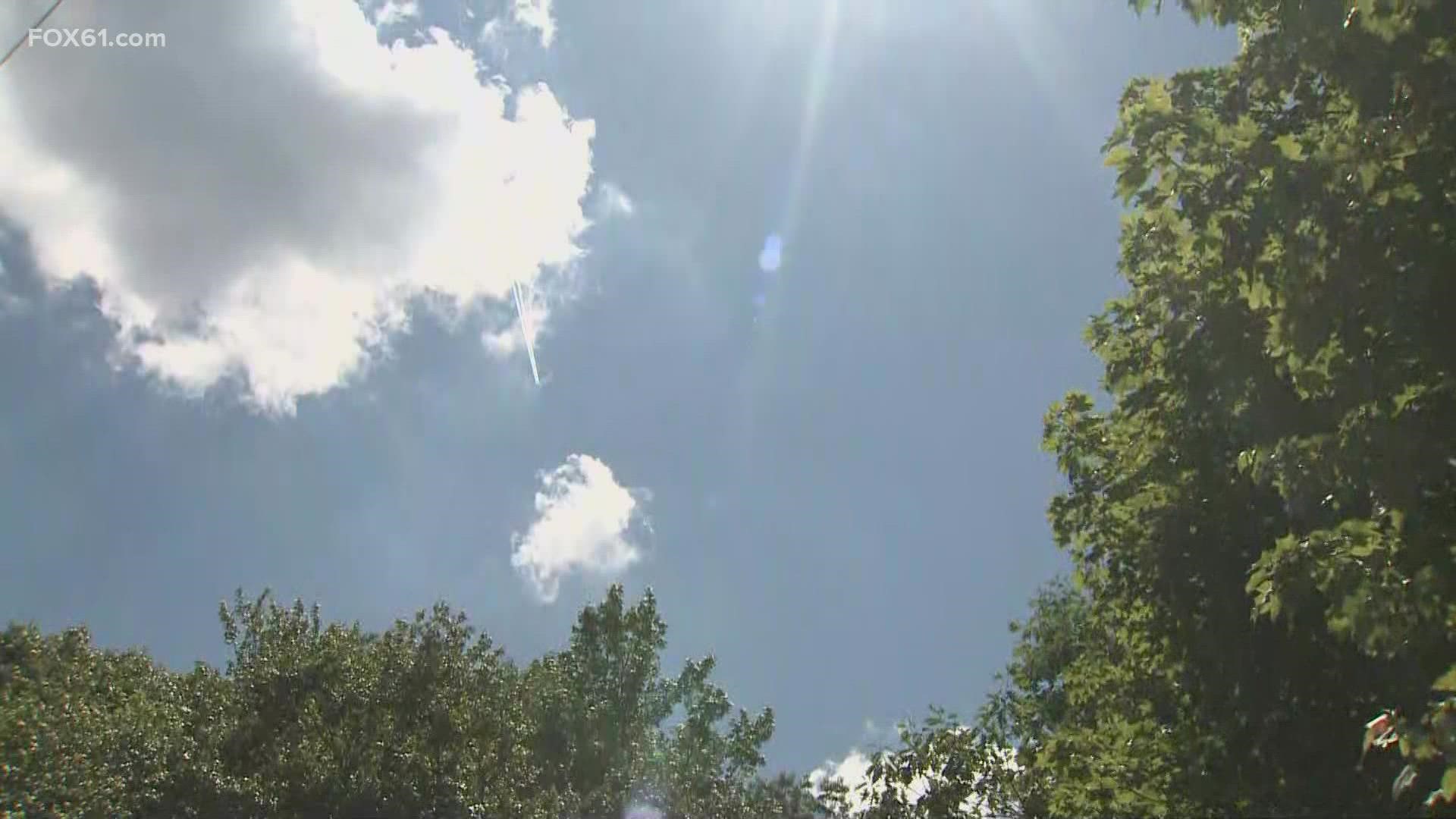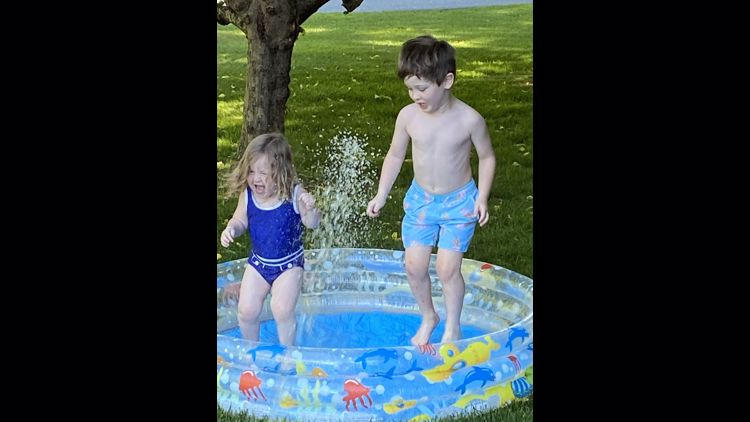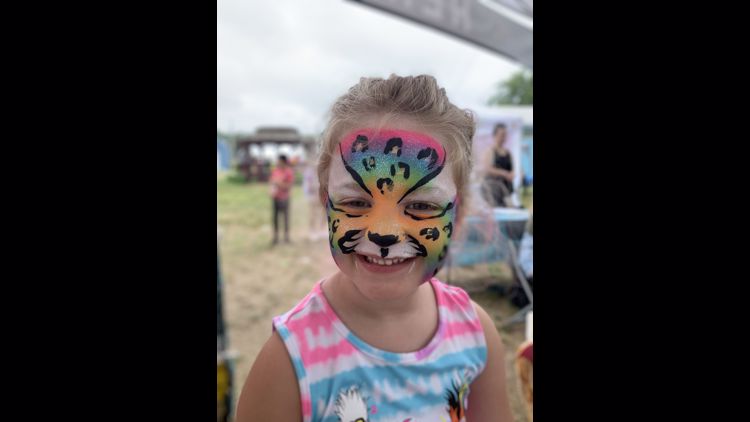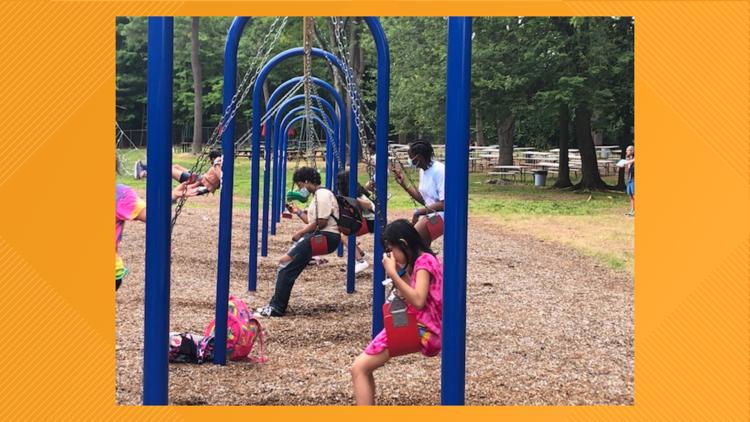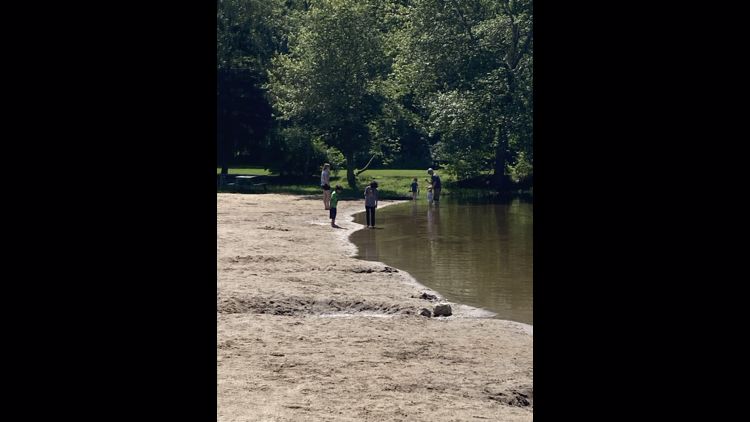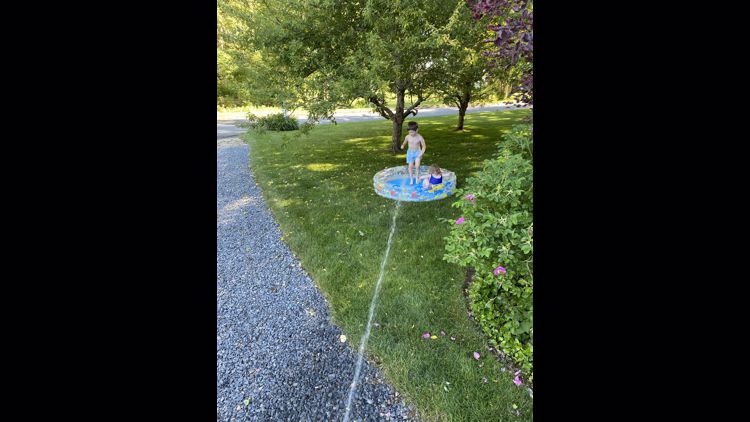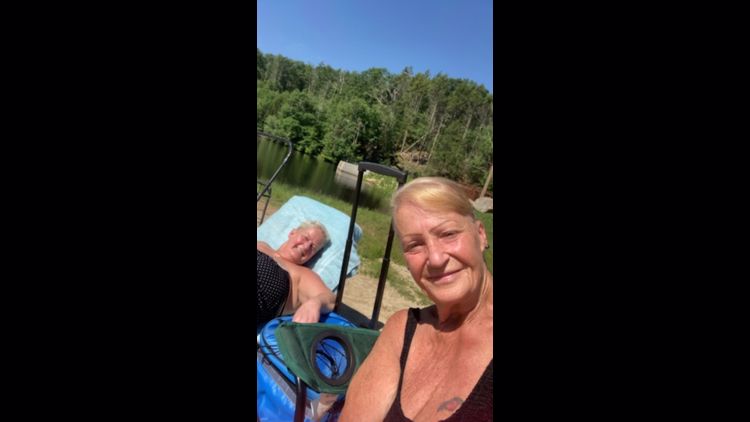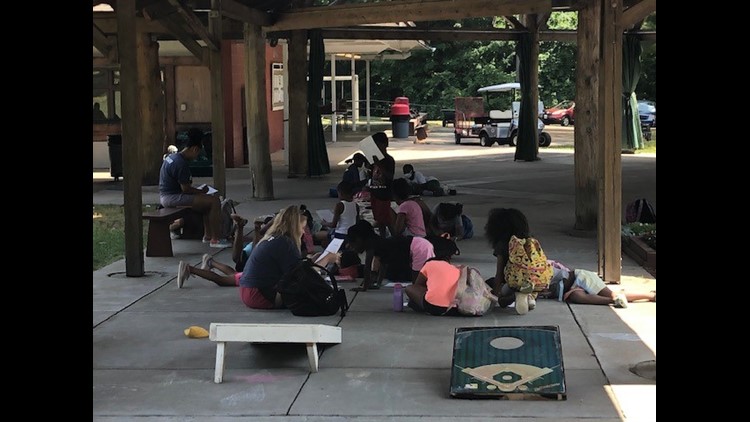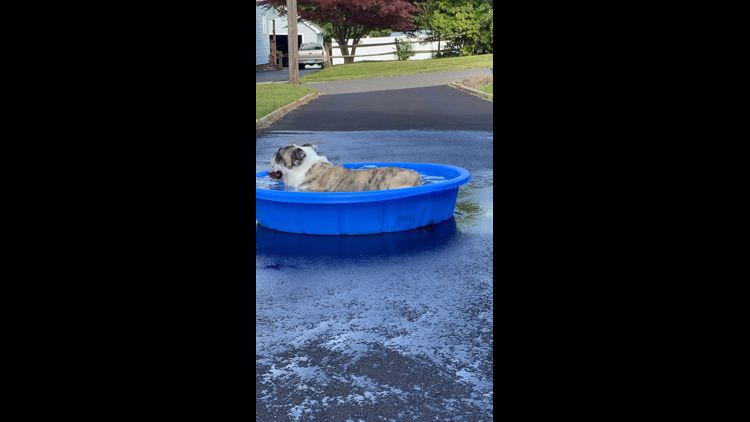HARTFORD, Conn. — The state is under a heat advisory and excessive heat watch through the end of the week, according to the National Weather Service.
You take preventative steps to lessen the risk of heat related illnesses according to state officials.
- Be prepared to drink plenty of fluids
- Stay in air conditioning or dark, cool conditions when possible, stay out of the sun and check up on relatives and neighbors.
- Young children and pets should never be left unattended in vehicles under any circumstances, as car interiors can reach lethal temperatures in just minutes under these conditions.
- During periods of extreme heat, cooling centers are often opened up at the local level. These cooling centers provide a place to cool off for members of the community especially those most impacted by extreme heat.
- stay hydrated
- stay indoors
- watch for signs of dehydration (dizziness, fatigue, dry mouth)
- don’t leave pets outside
- don’t leave children or pets inside the car
- check on elderly neighbors
According the Centers for Disease Control, during 2004–2018, an average of 702 heat-related deaths (415 with heat as the underlying cause and 287 as a contributing cause) occurred in the United States annually.
“If you have to be outside, I would recommend staying hydrated with water, not with beer, not with coffee, not with anything else. Water is the best for you,” said Cynthia Price, MD, with Hartford Hospital’s Department of Emergency Medicine. “But we do not recommend drinking alcohol. It will internally deplete what you have and keep you dehydrated on the other side.”
Price also said it is important to pay attention to your body.
“If you’re starting to get dizzy, if you are starting to feel light-headed, sit down, get cool, wet your shirt, get in the breeze, get in the shade. The best thing to do once you get overheated is to become cool again,” Price said.
Here's more advice from the State of Connecticut.
If a city/town has opened a designated cooling center, United Way-211 lists the site location and hours on their website.
To have your Cooling Center information added or any changes made to current listings, please send your information to: info@ctunitedway.org
United Way-211 also lists statewide swimming locations. Click here for a full list.
Hartford has opened several cooling centers in the city for the rest of the week and the fire department will be giving out water as well.
Cooling centers in Hartford:
1. Hartford Downtown Main Library @ 500 Main St., Wed-Fri, 9AM- 6PM. Library branches open as follows:
a. Barbour Branch @ 261 Barbour St., Wednesday 10AM – 6PM
b. Dwight Branch @ 7 New Park Ave., Wednesday 10AM – 6PM
c. Camp Field Branch @ 30 Campfield Ave., Thursday 10AM – 6PM
d. Albany Branch @ 1250 Albany Ave., Thursday 10AM – 6PM
2. North End Senior Center @ 80 Coventry St., Wed – Fri 9AM – 3PM
3. South End Senior and Wellness Center @ 830 Maple Ave., Wed – Fri 9AM- 3:30PM
Summer Weather
The Alzheimer’s Association offers tips for families facing Alzheimer’s and other dementias to prepare for extreme heat conditions:
● Plan ahead. Family and friends should prepare accordingly and make plans to regularly check-in on a person living with dementia during extreme heat. Arrange alternative plans for cooler spaces, if air conditioning is unavailable, and dress in loose, light clothing.
● Stay hydrated. Increased water intake is essential to maintaining good hydration and health during extreme heat. Know the signs of heat exhaustion to avoid heat stroke. Dehydration may be difficult to notice in a person living with dementia, as signs like increased fatigue, dry mouth and headache may be difficult to detect.
● Pay attention at night. Keep people living with dementia cool by using fans and keeping the air conditioning on. At night, low temperatures can still exceed 75 degrees with little fluctuation in humidity levels, making for difficult and exacerbating sleeping conditions, heightened anxiety and increased agitation.
● Stay informed. Keep an eye on local weather forecasts. High temperatures are not the only cause for concern. Humidity and air pollution indices can cause breathing difficulties. The person should be monitored regularly and seek medical attention if symptoms of dehydration or heat exhaustion last for more than one hour.
Extreme Heat Preparedness Tips
Take Care of Yourself and Check on the Most Vulnerable:
- Check on your neighbors, especially the elderly, young children, and those with respiratory illnesses to ensure they are remaining hydrated and have adequate cooling in their homes.
- Infants and young children are sensitive to the effects of high temperatures and rely on others to regulate their environments and provide adequate liquids.
- People 65 years of age or older may not compensate for heat stress efficiently and are less likely to sense and respond to change in temperature.
- People who are overweight may be prone to heat sickness because of their tendency to retain more body heat.
- People who overexert during work or exercise may become dehydrated and susceptible to heat sickness.
- People who are physically ill, especially those with heart disease or high blood pressure, or who take certain medications, such as for depression, insomnia, or poor circulation, may be affected by extreme heat.
Stay Cool: Keep your body temperature cool to avoid heat-related illness
- Stay in air-conditioned buildings as much as possible. If you must be outdoors, try to limit your outdoor activity to the morning and evening. Try to rest often in shady areas so that your body has a chance to cool off.
- Find an air-conditioned shelter. (Call 2-1-1 for a list of cooling centers). Do not rely on a fan as your primary cooling device.
- Avoid direct sunlight.
- Wear lightweight, light-colored clothing.
- Take cool showers or baths.
- Check on those most at-risk several times a day.
- Pets that cannot be brought indoors should be provided ready access to water and shade to keep them cool.
Stay Hydrated: Because your body loses fluids through sweat, you can become dehydrated during times of extreme heat
- Drink more water than usual.
- Don’t wait until you’re thirsty to drink more fluids.
- Drink from two to four cups of water every hour while working or exercising outside.
- Avoid alcohol or liquids containing high amounts of sugar.
- Remind others to drink enough water.
--
HERE ARE MORE WAYS TO GET FOX61 NEWS
Download the FOX61 News APP
iTunes: Click here to download
Google Play: Click here to download
Stream Live on ROKU: Add the channel from the ROKU store or by searching FOX61.

